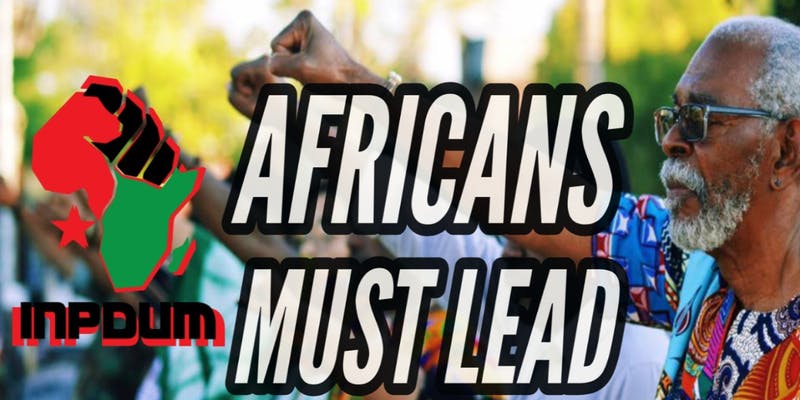Dec. 30–Jan. 4 Bangladesh: Almost 100 million Bangladeshis voted in the country’s parliamentary elections despite widespread voter suppression conducted during the campaign. Al Jazeera reported the previous ruling party—the Awami League—and its Prime Minister Sheikh Hasina remained in power as expected following the election, with some districts voting 99.9 percent in favor. Of the 289 contested seats, the Awami League won 288. As of Jan. 4, the UN has called for an independent investigation into the election due to reports of arbitrary arrests, disappearances, intimidation and other forms of voter suppression.
Dec. 31 Turkey: Three months after the initial disappearance of Saudi dissident journalist Jamal Khashoggi, a video leaked to Turkish media outlet A Haber via Al Jazeera showing men with a Saudi hit team carrying several large bags and suitcases from a black SUV into the residence of the Saudi consul general. With still no body following Khashoggi’s murder, the leaked video has caused further speculation that his body was dismembered and carried out in bags from the consulate, a theory which had arisen prior to the most recent video release.
Jan. 1 Germany: A man was arrested following an attempt to murder a multitude of people spanning two cities, leaving eight people wounded, most of whom originated from either Syria or Afghanistan. According to State Interior Minister Herbert Reul via Deutsche Welle, the man had “clear intention of killing foreigners” when he drove his car into pedestrians in the city of Bottrop, and expressed racist and xenophobic sentiments while in custody. Before being apprehended, he made an additional attempt at another group in the city of Ruhr. The wounded included a Syrian woman alongside her husband and two teenage daughters, an Afghan woman and her 4-year-old son, a 10-year-old Syrian and a Turkish German national.
Jan. 1 Israel; United States: The U.S. and Israel’s 2017 decision to withdraw from the United Nations Educational, Science and Cultural Organization—more commonly known as UNESCO—went into effect, as reported by Al Jazeera and Deutsche Welle. UNESCO is an agency within the UN designed to, among other goals, protect and preserve the world’s natural and cultural heritage sites. The two governments under President Donald Trump and Prime Minister Benjamin Netanyahu criticized the organization of anti-Israel bias. However, the withdrawal will not have significant financial ramifications since both countries stopped payments in 2011.
Jan. 1 Somalia: Nicholas Haysom, special representative of the UN Secretary-General for Somalia, has been ordered to leave the country by the Somali government due to accusations of meddling in internal affairs, Reuters reported. The accusations come after Haysom sent a letter on Dec. 30 questioning involvement of Somali forces in the arrest of a former al Shabaab militant. In response, the foreign affairs ministry stated, “He openly breached the appropriate conduct of the UN office in Somalia” and therefore “is not required and cannot work in this country.”
Jan. 1 U.S.–Mexico Border: Early in the morning on Jan. 1, U.S. border patrol tear gassed migrants and asylum seekers along the border between San Diego, Calif. and Tijuana, Democracy Now! reports. Around 150 people attempted to cross over into the U.S., as reported by The New York Times, prompting Customs and Border Protection to use a combination of smoke, pepper spray and tear gas, with spokesman Andrew Meehan claiming safety on both sides of the wall to be a critical issue. At least 25 were detained following the exchange.
Jan. 1–2 Brazil: President-elect Jair Bolsonaro formally became president on Jan. 1 when he was sworn into office amid a procession with 12,000 militarized police present for security, as reported by TeleSUR. The new, far-right president, who is often compared to U.S. President Donald Trump due to a history of misogynistic, racist and homophobic statements, has promised to fight violent crime and corruption while strengthening the economy as well as opening the Amazon rainforest for commercial exploitation of resources. On Jan. 2, TeleSUR reported Bolsonaro removed through executive order policies in place to protect LGBTQ rights which had formerly been a part of the Ministry of Women, Family and Human Rights.
Jan. 2 Bolivia: The government of Bolivia officially began registration for its new universal healthcare system, named the Unified Health System (SUS). Healthcare officials began going door-to-door to register the 5.8 million uninsured Bolivians in the new system and will continue to do so until Jan. 28. The SUS is set to begin in March as the country invests around $200 million in hospitals and staff in preparation.
Jan. 2–4 India: In response to hardliner opposition against the Sept. 28 Supreme Court ruling allowing women inside the sacred Hindu temple Sabarimala, millions of women along the southwest coast of India staged a human wall spanning some 385 miles between the cities Thiruvananthapuram and Kasaragod on Jan. 1. The demonstration lasted approximately half an hour before dispersal. Two women identified as Bindu and Kanakadurga entered the temple in the early hours the next day, as reported by The Indian Express, and according to Al Jazeera, a third woman identified as Sasikala entered the temple on the night of Jan. 3. Security forces were required to control ongoing protests in response to the women’s presence.
Jan. 3 China: In a historic milestone, China became the first country to successfully land a probe on the far side—sometimes misnamed “the dark side”—of the moon following previous attempts by the U.S. and the former Soviet Union, as reported by Scientific American. The Chang’e 4 mission landed at 10:26 a.m. Beijing time on the floor of the Von Kármán Crater which spans 115 miles. The mission is intended to help scientists understand the moon’s structure as well as the solar system in general.
Jan. 4 Germany: Hundreds of German politicians, including Chancellor Angela Merkel, were hit with a mass data hack as phone numbers, contact info, credit card and banking information of major political parties, ID cards, letters and memos were published to Twitter. While the information published was not deemed sensitive, the data hack has been described as a serious attack by Justice Minister Katarina Barley via Deutsche Welle. The hack spanned all political spectrums with the exception of the far-right Alternative for Germany.
Jan. 4–6 Egypt: Following an interview between CBS’ 60 Minutes and Egyptian President Abdel Fattah el-Sisi, the Egyptian government demanded the news network not air the segment due to some of the president’s statements, including the admission of close cooperation with Israel in the Sinai region and denial of holding political prisoners numbered at 60,000. CBS stated on their website that “other questions, including jailing his opponents to maintain his regime and the massacre of 800 civilians by Egypt when he was Defense Minister were not the kind of news his government wanted broadcast.” The Interview Egypt’s Government Doesn’t Want on TV aired as planned the evening of Jan. 6.
Ongoing – Sudan: Protests continue in Sudan for the third and fourth weeks amid rising prices and political tensions. Protests began on Dec. 19 as anger mounted over rising bread prices. A state of emergency was declared after eight people were killed and demonstrators set fire to the headquarters of the National Congress Party while calling for the ruling party’s President Omar al-Bashir to step down. According to Middle East Eye, a top official within the NCP called for Bashir’s resignation through WhatsApp on Jan. 3, prompting another spike in demonstrations the next day on Jan. 4.
When I first came to PSU, I was a Chinese major, having studied three years prior in high school alongside French and Japanese. After the first year, I took a hiatus. I don't believe in going to college straight out of high school, but it's what was expected. I returned a few years later to study Japanese at PCC and Arabic at PSU. I am now a junior majoring in International Studies: Middle East and Arabic. In the future, I would like to work as a journalist or humanitarian aid worker in the region, helping people who lack economic and political backing and media exposure.




